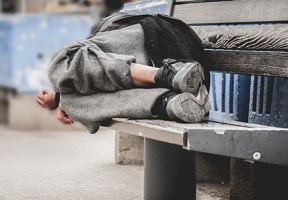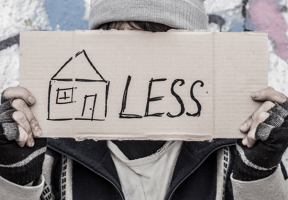

Persons experiencing homelessness (PEH) who were at high risk of severe COVID-19 were 2.5 times less likely to contract SARS-CoV-2 if they were provided with individual hotel rooms and medical and social support compared to citywide rates in homeless shelters, according to new research from the University of Chicago Medicine, Lawndale Christian Health Center, and the Chicago Department of Public Health (CDPH). Additionally, PEH who participated in this housing intervention also saw improvements in certain health measures such as blood pressure, and more than half of them moved on to longer-term housing after the intervention. The results were published on December 13 in JAMA Network Open. Initially, the team did not set out to conduct a research study; instead, their focus was simply to minimize the impact of COVID-19 on an extremely vulnerable population.
The city of Chicago offered an entire hotel — almost 200 rooms — for the intervention, and the first guests arrived on April 2, 2020. The healthcare team conducted screenings in shelters to identify high-risk individuals meeting at least one of the following criteria: at least 60 years old, at least 55 years old with any underlying health condition, or under 55 years old with any health condition known to substantially increase COVID-19 risk (e.g., HIV/AIDS). Those who met the criteria were offered the option to move from the shelter to an individual hotel room with extensive supportive services, where they were able to stay as long as needed, up to the full five-month length of the intervention. After the intervention ended in September 2020, the outcomes were clear: providing people experiencing homelessness with individual hotel rooms and wraparound care led to a dramatic reduction in COVID-19 rates and improvements in other health measures, including lower blood pressure and improvements in glycemic control. Also, over half of the individuals who spent time in the hotel went on to more permanent housing.









